'Warriors' vs 'guardians': the pitfalls of police recruit training in the US
American police training fails to keep pace with the increasingly complex realities that today's officers face

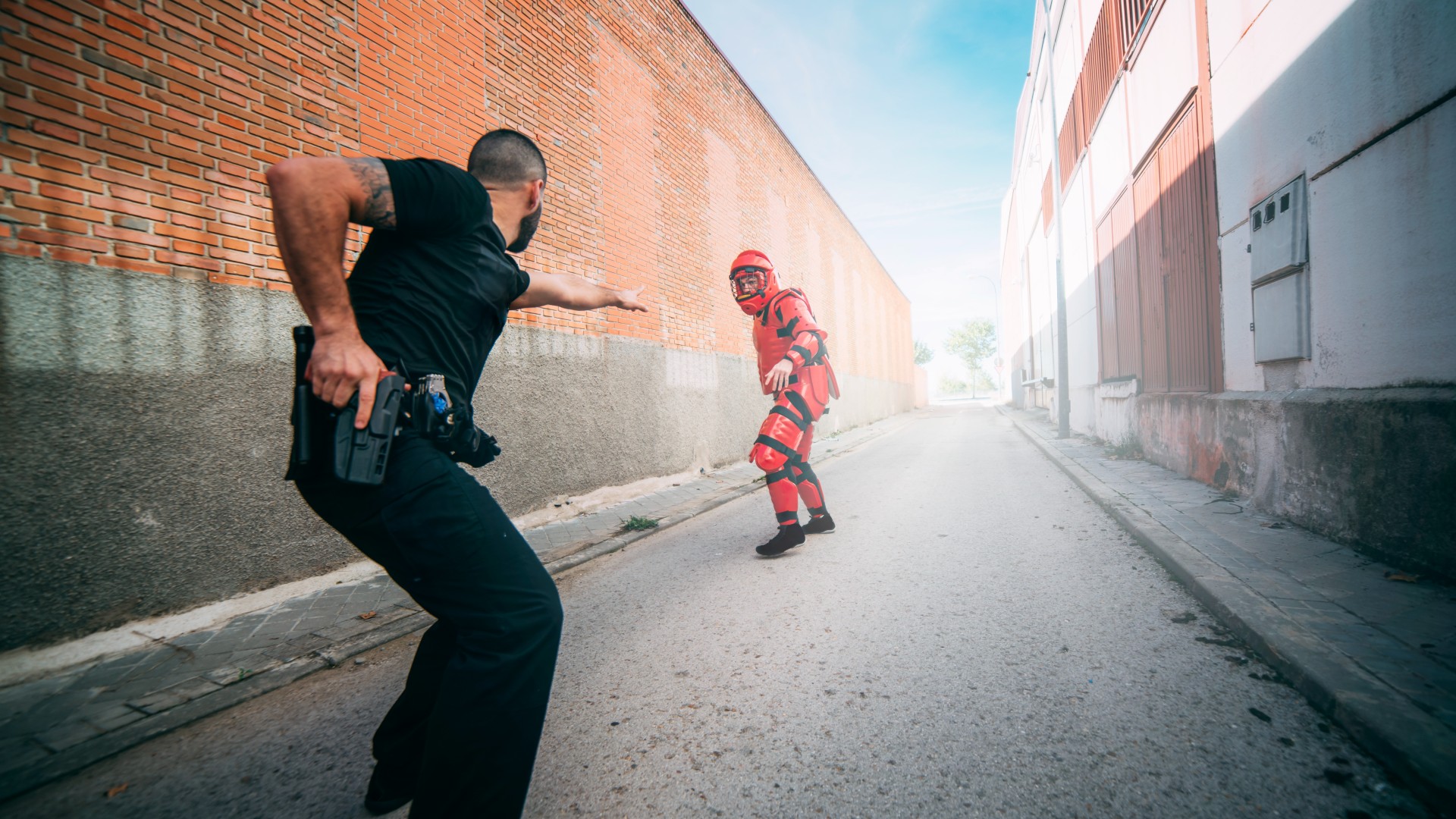
A free daily email with the biggest news stories of the day – and the best features from TheWeek.com
You are now subscribed
Your newsletter sign-up was successful
The relationship between the general public and law enforcement in America has been historically fraught with challenges, leading to repeated calls for police reform. Much of the recommended reform is centered around the root of the problem: the lack of basic training for new police officers.
While police cameras have helped some with the need for more transparency, they have also captured moments that call into question how prepared police officers really are. Recently, a Florida deputy went viral for emptying his gun into his parked cruiser, where a suspect sat cuffed, because he mistook the sound of an acorn falling for a gunshot. Bodycam footage also captured the moment Texas deputies shot a woman in her own home after she was mistaken for an intruder. These were just two of the incidents experts say could have been avoided with proper police training.
Dramatic changes in policing outpace American training models
American police academies have historically trained new officers "on the cheap," said Police Executive Research Forum (PERF), an independent research organization. A 2020 nationwide survey of their membership, comprised of law enforcement executives, found that over 71% of agencies devoted less than 5% of their budget to recruit training. The respondents included agencies in 43 states, the District of Columbia and Canada, with the majority being local police departments. Almost half of the agencies said they had increased spending on recruit training in the previous five years, but that was before they faced budget cuts related to Covid-19 and calls to "defund" the police.
The Week
Escape your echo chamber. Get the facts behind the news, plus analysis from multiple perspectives.

Sign up for The Week's Free Newsletters
From our morning news briefing to a weekly Good News Newsletter, get the best of The Week delivered directly to your inbox.
From our morning news briefing to a weekly Good News Newsletter, get the best of The Week delivered directly to your inbox.
Many jurisdictions aim to move as many recruits as possible through academy training quickly and at the lowest possible cost. This approach is partially driven by the "desire to get more officers on the street quickly," PERF said in their 2022 report "Transforming Police Recruit Training: 40 Guiding Principles." The need for more personnel became "particularly acute" as retirements and resignations increased during the pandemic.
The length of recruit tracking in the U.S. seems limited compared to other demanding professions and law enforcement in other countries — especially given the challenges today's officers face policing amid "an opioid addiction crisis, an underfunded behavioral health system, a protracted pandemic and a largely unchecked firearms market," PERF said. According to The Institute for Criminal Justice Training Reform, 37 states allow recruits to begin working as police officers before they complete their basic training course.
PERF also pointed out that the academy is not necessarily aligned with research on what works, though more research should be done in this area. While training is crucial to onboarding new officers, there is "little evidence about its effectiveness," the Council on Criminal Justice Task Force on Policing said. "The scant research that does exist is not promising."
The PERF report concluded that recruit training has not "kept pace with the dramatic changes that have taken place in policing" recently or with the "increasingly complex and challenging realities that today's police officers face." Too often, academies continue to "train officers to be warriors" even though agencies and surrounding communities need them to be "guardians, social workers, and community partners" as well.
A free daily email with the biggest news stories of the day – and the best features from TheWeek.com
The Uvalde tragedy put a spotlight on another shortcoming
The fallout over police inaction during the 2022 mass shooting at Uvalde's Robb Elementary School moved active shooter training to public center stage. An investigation published in December by The Texas Tribune, ProPublica and "Frontline" revealed that around 30% of the 116 state and local officers who responded to the elementary school did not get active shooter training after graduating from a training academy. As for those who were trained, many only received the instruction once in their careers, which at least "eight police training experts say is not enough," the Texas Tribune said.
As part of the joint investigation, the news organizations did a nationwide analysis examining active shooter training requirements and found "critical gaps in preparedness" between students and law enforcement. While at least 37 states require yearly active shooter drills in schools, no states mandate similar training for officers annually. Instead, training policies are left up to individual school districts and local police departments, creating a "patchwork approach in which some proactively provide such instruction, and others do not," said the Tribune.
At the beginning of this year, U.S. Attorney General Merrick Garland's office released a report that detailed the failures of the police response at Robb Elementary. The federal report recommended that officers receive eight hours of active shooter training annually. However, according to the newsrooms' nationwide analysis, Texas is the only state that comes close to the DOJ's recommendation. Last year, the state mandated that all its officers, and not just school police, take 16 hours of such training every two years. About a dozen other states increased training requirements after Uvalde, but many "continue to fall short of what police training experts say is needed," the Tribune said. The deficits in training requirements begin "before officers' first day on the job." While police training academies in nearly every state have some type of active shooter training, five states — California, Georgia, Ohio, Washington and Vermont — do not require it for all recruits.
The lack of training requirements becomes more pronounced for officers who have graduated from police academies. Texas and Michigan are the only states that require active shooter training for all officers once they're on the job. Texas requires recurring instruction, but Michigan gives the training once after they graduate. Some state-mandated training only happens once a year, leaving out anyone not employed at that particular time. Other states only require the training for school police, as Texas did before the Uvalde shooting. Only two of them, Illinois and Mississippi, require it more than once.
The changes that need to be made
While police reform remains a "contentious subject," the inadequacy of current training models provides a "rare point of relative consensus," The Atlantic said in 2021. "Police officers, police chiefs, and everyone agree that we do not get enough training in a myriad of fields," Dennis Slocumb, the legislative director of the International Union of Police Associations, told the outlet. The problem is that some small police departments already struggle to afford officer training for just a few months. The type of extended training, ongoing education and training refreshers that experts recommend would require more funding for policing at a time when "activists are calling to defund the police," The Atlantic added.
It will take "long, boring, nuanced" work to address the "structural issues of American policing," former law enforcement officer Katie Sponsler said in TIME last year. This means a concerted effort to face uncomfortable discussions about cultural issues, "training that is standardized and reviewed by a diverse group of stakeholders," and continued investment in "community care that addresses the root causes of crime" to push the needle on training reform. "It won’t be enough at first," Sponsler said, but at least "we'll be moving forward."
American police training is "outdated, antiquated" and trying to cheaply do what other countries have "done in a comprehensive way," PERF Executive Director Chuck Wexler told ABC News last year. Many police academies still resemble military boot camps, with "cadets in buzz cuts and hair buns getting yelled at by drill instructors," he said. There's more focus on skills like marksmanship and defensive tactics and less on "soft skills" like communication and crisis intervention.
"People call those soft skills…those are hard," Wexler said. "Those are important skills, to know your limitations and also to ask the right questions." Shifting training to focus on de-escalation and critical thinking skills is not only "safer for the person you're dealing with, but it's actually safer for police officers."
Theara Coleman has worked as a staff writer at The Week since September 2022. She frequently writes about technology, education, literature and general news. She was previously a contributing writer and assistant editor at Honeysuckle Magazine, where she covered racial politics and cannabis industry news.
-
 The best music tours to book in 2026
The best music tours to book in 2026The Week Recommends Must-see live shows to catch this year from Lily Allen to Florence + The Machine
-
 Gisèle Pelicot’s ‘extraordinarily courageous’ memoir is a ‘compelling’ read
Gisèle Pelicot’s ‘extraordinarily courageous’ memoir is a ‘compelling’ readIn the Spotlight A Hymn to Life is a ‘riveting’ account of Pelicot’s ordeal and a ‘rousing feminist manifesto’
-
 The EU’s war on fast fashion
The EU’s war on fast fashionIn the Spotlight Bloc launches investigation into Shein over sale of weapons and ‘childlike’ sex dolls, alongside efforts to tax e-commerce giants and combat textile waste
-
 The 11 most infamous abductions in modern history
The 11 most infamous abductions in modern historyin depth The taking of Savannah Guthrie’s mother, Nancy, is the latest in a long string of high-profile kidnappings
-
 Why have homicide rates reportedly plummeted in the last year?
Why have homicide rates reportedly plummeted in the last year?Today’s Big Question There could be more to the story than politics
-
 How the ‘British FBI’ will work
How the ‘British FBI’ will workThe Explainer New National Police Service to focus on fighting terrorism, fraud and organised crime, freeing up local forces to tackle everyday offences
-
 ‘Stakeknife’: MI5’s man inside the IRA
‘Stakeknife’: MI5’s man inside the IRAThe Explainer Freddie Scappaticci, implicated in 14 murders and 15 abductions during the Troubles, ‘probably cost more lives than he saved’, investigation claims
-
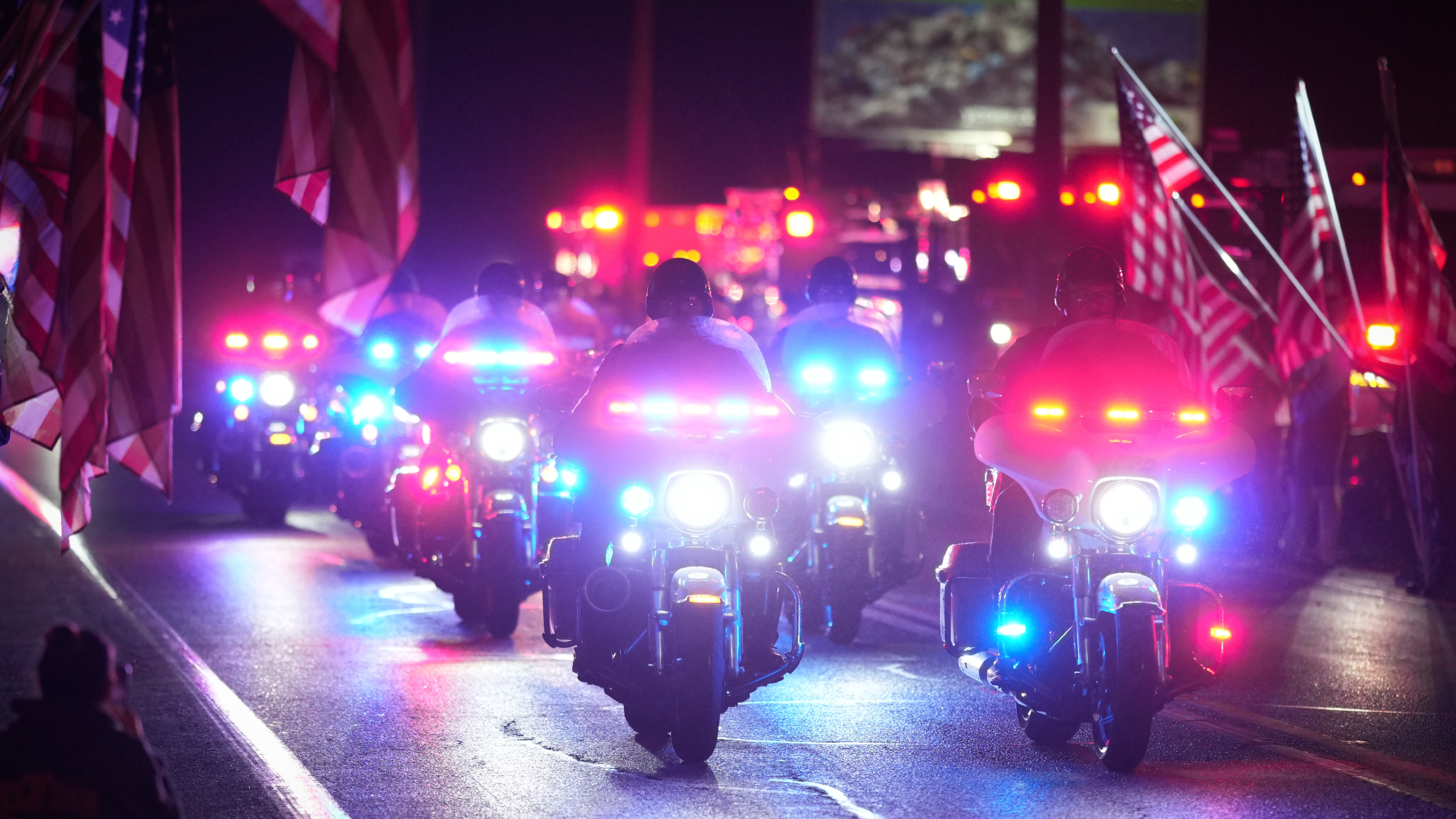 3 officers killed in Pennsylvania shooting
3 officers killed in Pennsylvania shootingSpeed Read Police did not share the identities of the officers or the slain suspect, nor the motive or the focus of the still-active investigation
-
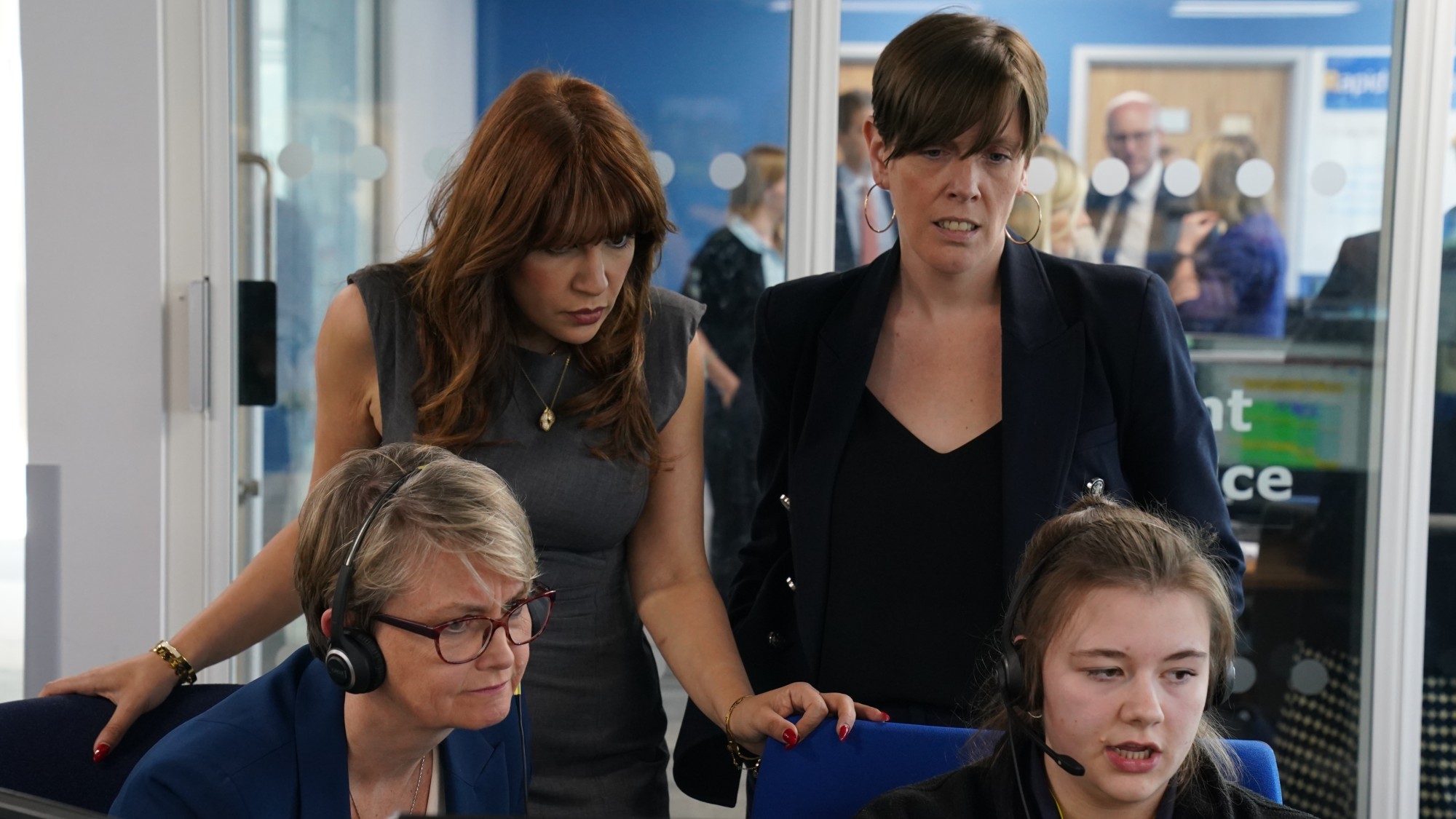 Dash: the UK's 'flawed' domestic violence tool
Dash: the UK's 'flawed' domestic violence toolThe Explainer Risk-assessment checklist relied on by police and social services deemed unfit for frontline use
-
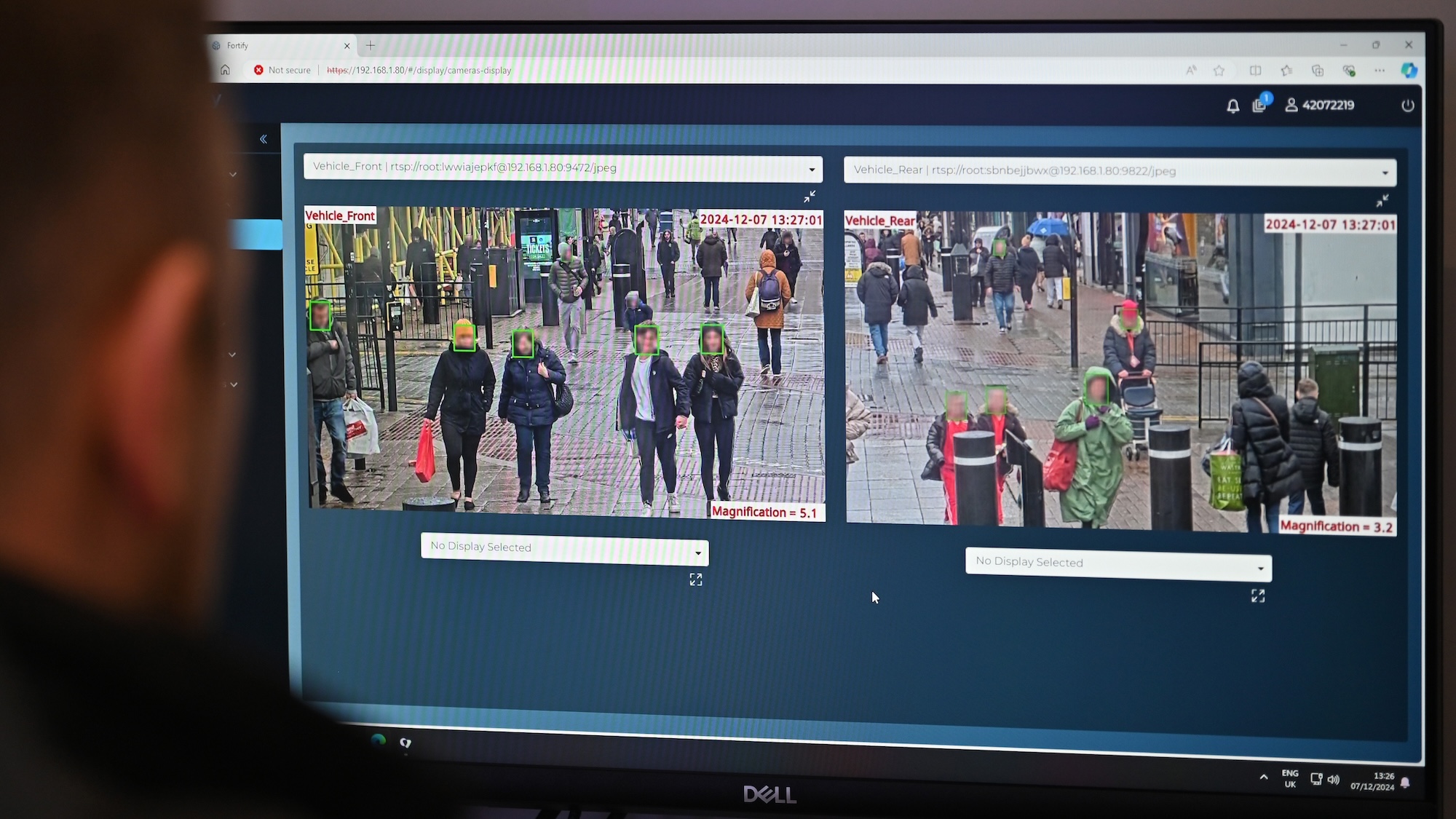 The ethics behind facial recognition vans and policing
The ethics behind facial recognition vans and policingThe Explainer The government is rolling out more live facial recognition technology across England
-
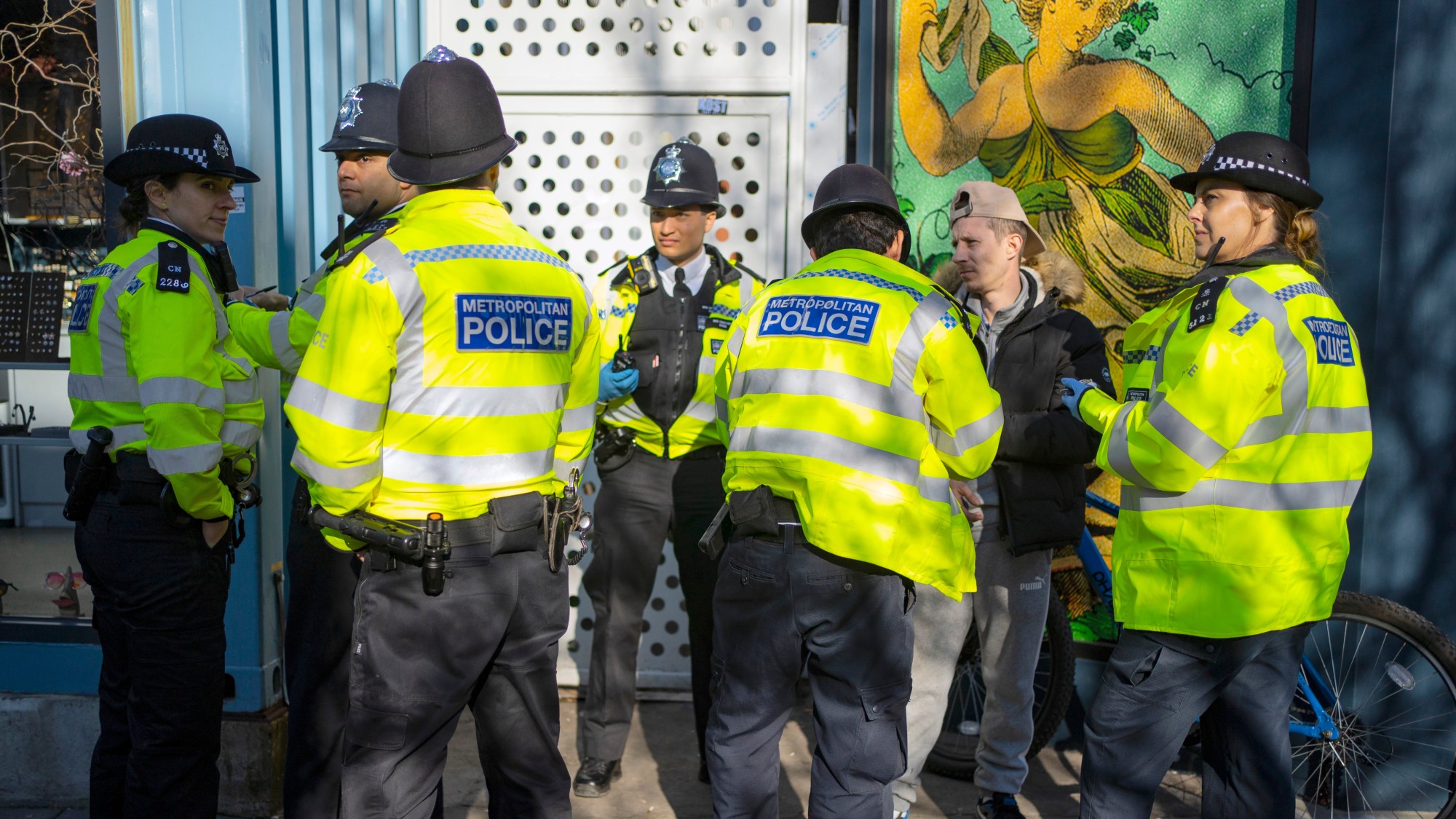 The Met police's stop and search overhaul
The Met police's stop and search overhaulThe Explainer More than 8,500 Londoners have helped put together a new charter for the controversial practice
